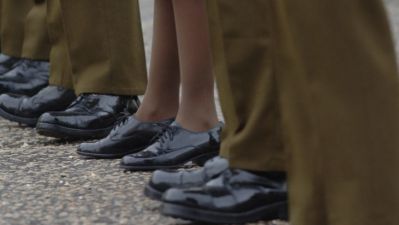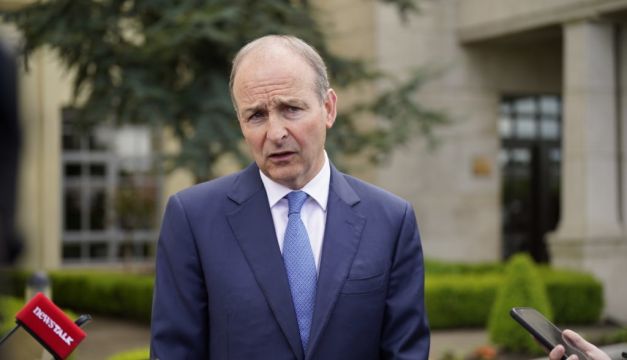The Tánaiste has said Ireland is not relying on the Royal Air Force and insisted that the British military does not “patrol” Irish skies.
Micheál Martin was responding to a report in The Irish Times that there was a long-standing defence deal between the British and Irish governments involving the RAF and Irish air space.
Speaking to the media before addressing a group representing Irish soldiers, Minister for Foreign Affairs Mr Martin claimed the report was not accurate “in terms of interdiction”.
“I believe that that story is not accurate that was released during the week,” he told reporters.
“We don’t talk about international security, or national security more generally. But as I said yesterday, we need to be clear on this that anything that Government, any agreements that Government enter into, are fully aligned with national sovereignty and sovereign decision-making, and also with military neutrality.”
He added: “We’re not relying on the RAF, as per reports, we’re not.
“We have limitations in terms of capacity without question, that’s not an issue. The focus is on improving that capacity over time.”
He added: “In terms of national security, we will deal with issues as they emerge, but I would point out, go back over the last two, three, four decades, the issues that you’re referring to (an incursion) simply have not happened.
“So we just need a bit of perspective and a bit of calm about this.”
When it was put to him that the British Secretary of State had said in November that RAF jets had been in Irish air spaces on several occasions, Mr Martin said: “There may have been occasions in the past, for different reasons, but again, I think a bit of common sense should prevail here.”
The Tánaiste also said that it was not “new news” that Russian ships had appeared within Irish waters, and said that the monitoring of “various” navies and air operations has been happening for a long time.
In response to questions on whether Ireland is the weakest link in Europe, he said that Ireland was investing in its defensive capabilities as recommended by the Commission on Defence Forces report.
He said: “That’s what we’re doing, we are investing in that now and the focus is on procurement now, of radar and so one and all of the necessary and ships and capacity on the equipment side – that’s on the way.”
Mr Martin acknowledged that it would take time for those defensive capabilities to be procured and delivered.
He added: “Again, I think that language, I’d have issues with it, quite frankly – it’s not as if the entirety of Europe is depending on us for its security, let’s get a small bit real about all of this. I’m a bit impatient with that kind of language.
“I’d much prefer a more calmer debate with a degree of perspective, understanding and acknowledging our limitations, then, having acknowledged as we have, enabled Government decisions and the Commission on the Future of our Defence Forces, improving our capacity and investing in people and investing in capacity.”
He said that it had been outlined in the Commission’s report that the State did not have sufficient defensive radar capabilities.
Mr Martin made the comments before addressing the Annual Delegate Conference of the Permanent Defence Force Other Ranks Representative Association (PDFORRA), in Trim, Co Meath.

During his speech, he emphasised the improved starting pay conditions and announced healthcare provision for enlisted personnel.
The Chief of Staff of the Defence Forces Lieutenant General Sean Clancy welcomed the announcement.
“The health and wellbeing of my personnel has always been one of my key priorities as Chief of Staff and in particular, this initiative clarifying the position with regard to private secondary medical care for all members of the Defence Forces,” he said.







